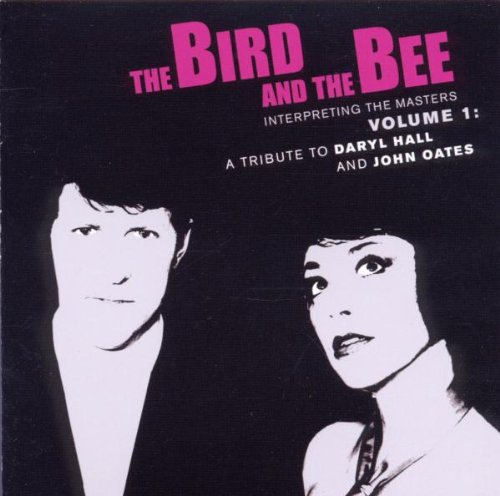
The Bird And The Bee
Interpreting The Masters, Volume 1: A Tribute to Daryl Hall And John Oates
Release Date: Mar 23, 2010
Genre(s): Rock, Pop
Record label: Blue Note
Music Critic Score
How the Music Critic Score works
Album Review: Interpreting The Masters, Volume 1: A Tribute to Daryl Hall And John Oates by The Bird And The Bee
Fairly Good, Based on 7 Critics
Based on rating 84%%
Volume 1 represents a then-and-now in pop music, a genre once inspired by soul and now consumed by dance. The Bird and the Bee don’t so much recreate Hall & Oates as they modernize them, taking the strictly adhered-to hooks and coating them in shimmering synth lines. “Sarah Smile” still retains the smooth R&B sensibility, but the harder-hitting beats paired with Inara George’s airy vocals on “Rich Girl” deepens the irony on this sunny classic.
Based on rating 8/10
The very title of Interpreting the Masters suggests that the Bird & the Bee are digging into a catalog of a widely respected pop songwriter -- a Burt Bacharach, perhaps, or a Jimmy Webb. That’s not the case: children of the ‘80s that they are, singer Inara George and producer Greg Kurstin have chosen Daryl Hall & John Oates for the first volume of Interpreting the Masters, a sly move that reveals both their age and intended audience -- i. e.
Based on rating 3/5
True pop stars live and die by the sword of public opinion. The empty-eyed adoration of millions of fickle fans is an unnatural burden for any human to bear; it is a love that can only end in ruin, either the ruin of a career (i.e., most one-hit wonders) or the ruin of a human being (i.e., Michael Jackson). Pop satisfies the consumer, despite what it often lacks in substance, because encoded into the emptiness of its material is a faith in the promise of an idea: the phenomenon of celebrity.
Based on rating 2.5/5
I love Hall & Oates. If you were born around the same time the duo flipped “I Can’t Go for That (No Can Do)” and at least one of your chromosomes carries the recessive gene that produces a susceptibility to hipsterdom, you love Hall & Oates too. But all I could think while listening to neo-synth pop duo the Bird and the Bee’s new collection of Hall & Oates covers, which comes complete with Private Eyes-cribbing cover art, was that hipsters might not be the best candidates to celebrate the legacy of the definitely MOR legends.
Based on rating 5/10
Well, it’s official. Liking Hall & Oates has reached the tipping point. If it didn’t already with Ben Gibbard’s “Top Ten Hall & Oates Songs” on Pitchfork, their becoming YouTube and SNL fodder, the “You Make My Dreams” production number in (500) Days of Summer, or the Fruit Bats’ recent cover of “One On One” for The Onion‘s A.V.
Based on rating 2/5
Producer/keyboardist Greg Kurstin and singer Inara George, L.A. songwriting duo the Bird and the Bee, probably had the time of their lives recording these Hall and Oates hits. They've delivered faithful, appreciative renditions, but the elephant-in-the-room question is why anyone would cop this disc instead of an H&O best-of. [rssbreak] It's not like Kurstin and George go deep into the catalogue for unheralded gems.
Opinion: Very Good
Caetano Veloso With a passing phrase in “Falso Leblon,” one of the more self-conscious tracks on “zii e zie” (Nonesuch), Caetano Veloso articulates the album’s point precisely. “Mas o meu samba transcende,” he sings — “But my samba transcends” — just as his band sets up a broodingly buoyant groove. Mr. Veloso, an unimpeachable eminence of Brazilian popular music, must know he isn’t straining with that claim.

